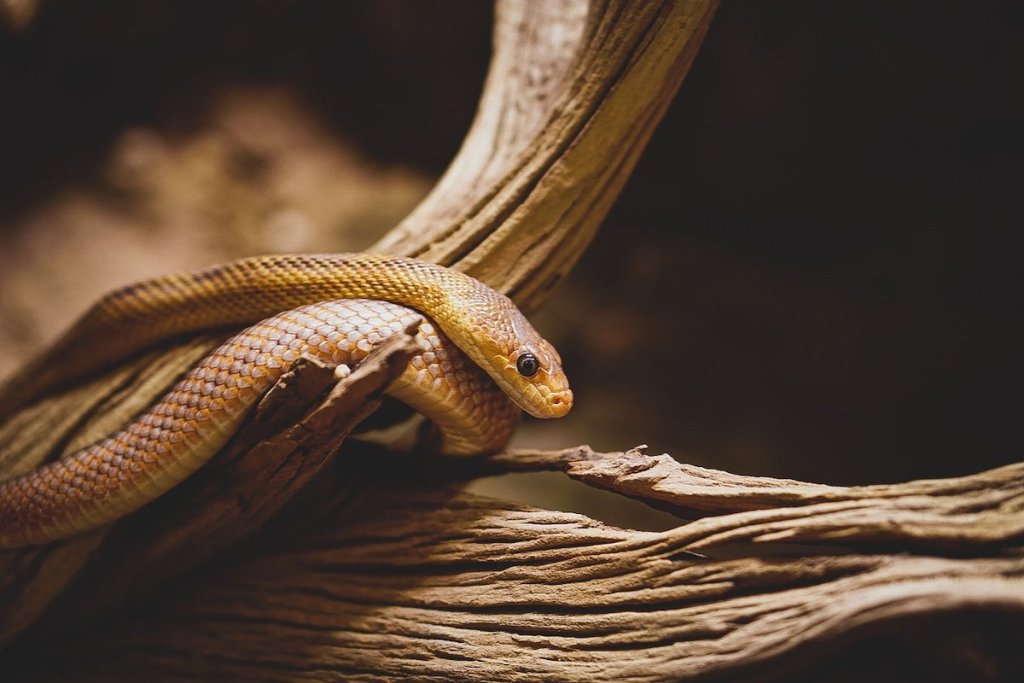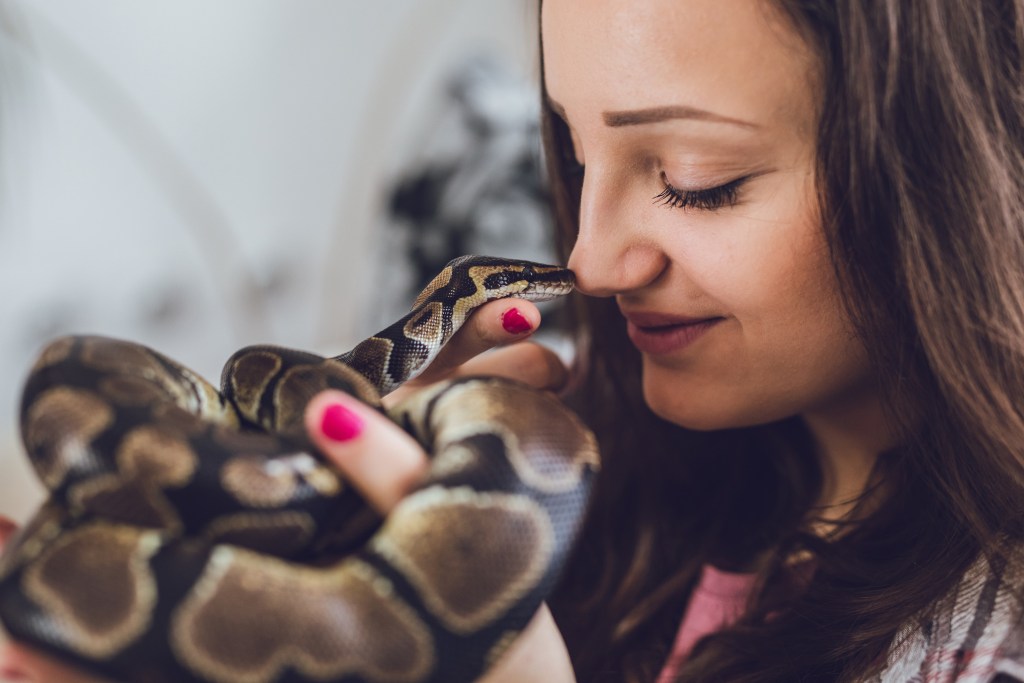Can snakes hear? Pet owners and reptile enthusiasts have asked this for a long time. It’s been thought that these slithering creatures don’t hear anything at all, in part because they don’t seem to have ears and don’t respond to noise the way humans do. But that doesn’t mean they have no ability to recognize sounds. Instead, they hear and feel differently than us in a few key ways. This will be important to know so you can understand how your snake experiences the world around you and how she senses the things you do.

Do snakes have ears?
You’ll notice that while your snake doesn’t have ear flaps, she does still have two holes in her head just behind the eyes. Inside is a partial ear that allows her to register at least some sounds. However, she doesn’t have eardrums, just bones that resonate and send information to her brain. That has a distinct impact on which noises she will pick up—very different ones than you’d recognize as a mammal with much more developed ears.
How do snakes hear?
Our outer ears help direct noise, and you’ll see this in action if you watch your dog perk up or rotate their ears to better hear something. Your snake lacks this ability, so she needs to rely on other ways to pick up audio cues. In fact, snakes don’t so much hear sound, but they feel it through vibrations. The lower jaw helps the snake receive these waves, and by placing her head on the ground, she can determine the direction of the waves. Therefore, snakes detect soundwaves that move through a solid material rather than the air (though recent research indicates they do hear a little bit through the air as well, just like mammals). Experts believe that detecting vibrations helps snakes catch prey by feeling where it’s moving.
This knowledge can help you too if you stumble across a snake in the wild. Despite their fearsome reputation, snakes are naturally fearful creatures. If you’re worried about encountering a snake in the woods or another area where it might be unwelcome, make plenty of noise, especially with your feet or by tapping a walking stick against the ground. This will often scare away any snakes who might be hiding out nearby, as they’ll most likely recognize the vibrations as coming from something far larger than they want to mess with.
What do snakes hear?
Because they have the inner ear bones only (for the most part), snakes respond to a small range of low frequencies. Keep this in mind when you want to find something that your pet will react to. As opposed to humans and other mammals, snakes almost never use vocalizations to communicate with other snakes. For snakes, hissing is meant for creatures that recognize those higher pitches, like us. That’s right: it’s likely that they evolved to hiss at mammals more than at each other. Luckily, part of the range that they perceive probably includes your voice, which is why some pet owners swear their snake looks up when they’re speaking. She probably can feel you calling her name, even if she doesn’t truly “hear” it!

Why can’t snakes hear well?
Mostly because they don’t need to have good hearing. Since they don’t communicate extensively through vocalizations (like humans and birds do), they don’t need to have good ears. Hearing also isn’t the only sense they lack: snakes also have really bad eyesight. Instead, their sense of smell is what allows them to be formidable hunters. Ever wonder why your snake noiselessly flicks her tongue a lot? She’s grabbing air molecules and returning them to the roof of her mouth to “smell” them and detect prey or predators.
So don’t go thinking that your snake completely lacks the ability to hear anything. She can pick up some noise, but she mostly interprets vibrations. If you want to communicate with your pet, though, you may need to think outside the box a bit. While she might respond to the sound of your voice, you can’t train a snake to react to words like you would with a dog or other mammalian pet. Try gently tapping on the ground around her so that she “hears” you when you talk to her. And as always, feel free to tell her she’s a good girl; even if she doesn’t understand, you will.



